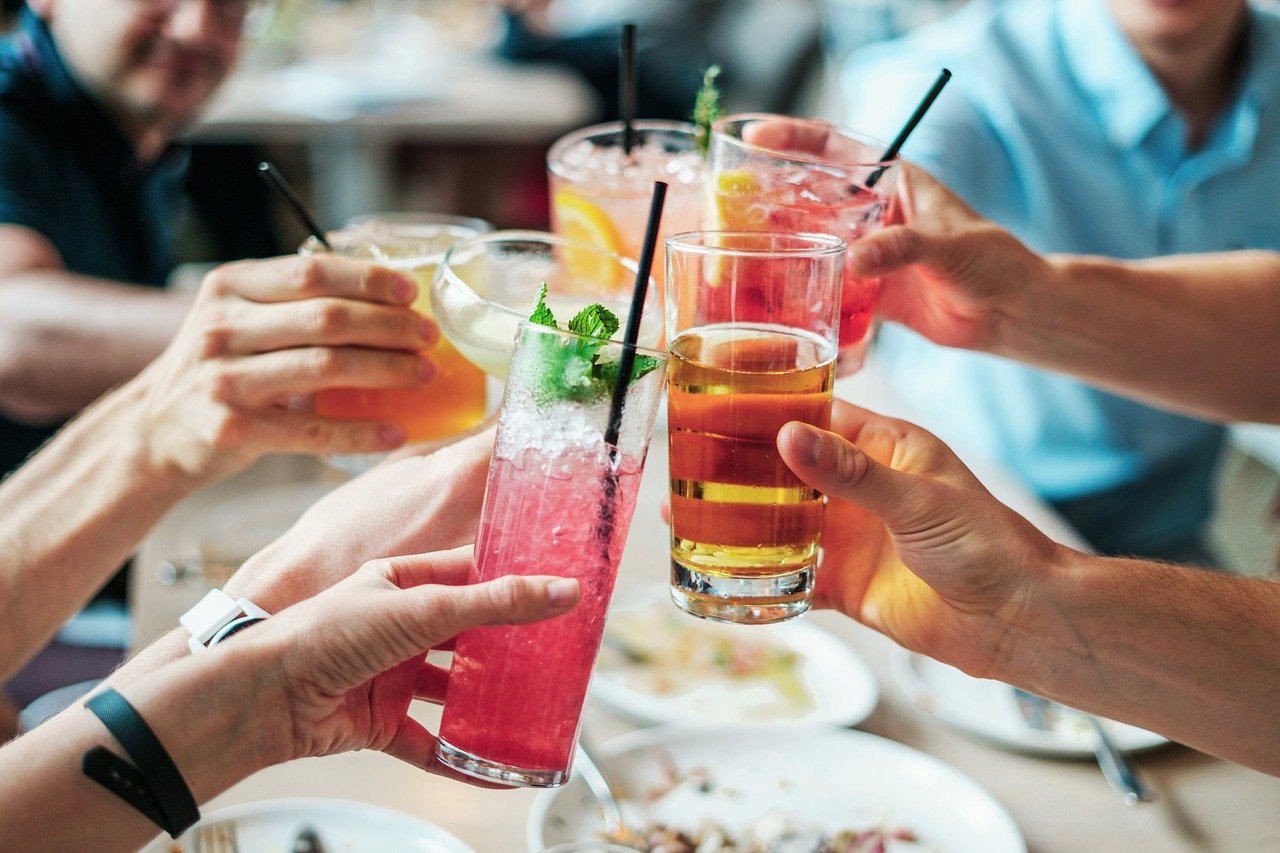Certain types of alcohol can inhibit the maximum potential of muscle gains and even lead to more fatigue during workouts. The worst part about this is that alcohol can stay in your system for 24 hours or more. It will affect your workout the next day and contribute to dehydration and loss of progress.
True fitness is comprised of consistent small steps forward—and consumption of your favorite hearty beer or wine can serve as two steps back. This isn’t to say you can’t enjoy alcoholic beverages on occasion, but if your goal is to get into peak physical condition, alcohol must be severely limited or cut off completely. Here, we’ll take a look at why alcohol is so detrimental to general fitness.
Alcohol Contains a High Caloric Value
The first obvious drawback to consuming alcohol is that it contains far more calories than most people realize. These are empty calories, meaning they don’t provide nourishment and can contribute to prolonged fatigue. Even a friendly alternative like carbonated liquor has consequences that hinder fat loss and/or fitness goals. The main culprit is the ingredient ethanol, an alcohol that produces byproducts which inhibit metabolic function. These byproducts—acetaldehyde and acetate—are responsible for hangovers and can negatively impact digestion over time.
One of the main problems with the consumption of alcohol extends beyond its caloric value. When they’re out with friends, people can drink more than they realize, leading to dehydration and the consumption of additional calories. If you’re trying to lose mass, then avoid social circles that have their foundation in drinking.
Alcohol Interferes with Metabolism
When any drink with ethanol enters the body, it is immediately prioritized and converted into acetate, which causes the metabolism to slow and prioritize its digestion. The metabolization of fat and sugar is not prioritized because the body is busy breaking down that beer you just ingested.
A healthy metabolism is essential to burning excess carbs; when it’s hindered, the system lacks fat-burning efficiency. When you drink, it’s easier to plateau and harder to push through the barrier. A personal trainer can help you through these walls, but you have to be willing to control your calorie intake to see results. Even high-intensity exercise is ineffective at shredding fat when you slammed six beers at that party last night.
Alcohol Triggers Hunger and Cravings
There are two reasons why the presence of ethanol in the body triggers cravings. First, it triggers the brain to think it’s in starvation mode, so you naturally seek food to remedy the problem. Second, we all know how it can cause people to lose inhibition and eat that extra cheeseburger.
The truth is, the more you drink, the more control you lose over your own body and fitness integrity. The body takes notice of the dehydration and drives you to seek sustenance. Exercise is of little value when trying to lose fat if you can’t balance your diet properly—and this is why it’s such a challenge for habitual drinkers. Quitting altogether will improve performance and mental clarity for the long term. Plus, your muscles will thank you because they will be able to absorb nutrients more efficiently.
Alcohol Spikes Cortisol Levels
Cortisol is a stress hormone that regulates the fight or flight response in the body, but it also has a bad reputation for the accumulation and storage of fat. The chemical itself is not “evil,” however, because it helps to fight inflammation after a strenuous workout. When you consume alcohol, it drastically increases the amount of cortisol, which in turn contributes to fat gain.
If you indulge too much, you may experience a hangover, which is when dehydration plagues many drinkers, especially if they don’t consume much water while drinking alcohol. If you’re a heavy drinker, then it will be incredibly difficult to attain the results you want, and most of your workout session will be spent burning empty calories with no fat loss.
Takeaways
All in all, it’s a wise decision to eliminate the consumption of high-calorie beer, wine, and liquor from your diet to increase the body’s metabolism. Reap the benefits of pure water and electrolytes with lower sugar for enhanced workout sessions that will leave nothing to be desired. You will see results and feel much better when your body isn’t working overtime to accommodate the alcohol. That’s really what it all comes down to with diet and training: to have self-control even when you see your friend sipping on a foamy glass of beer. Resist the urge to drink while on your fitness journey to see long-lasting results.
